Completed projects
Below you will find a list of the LFO's completed research projects.
Recently completed
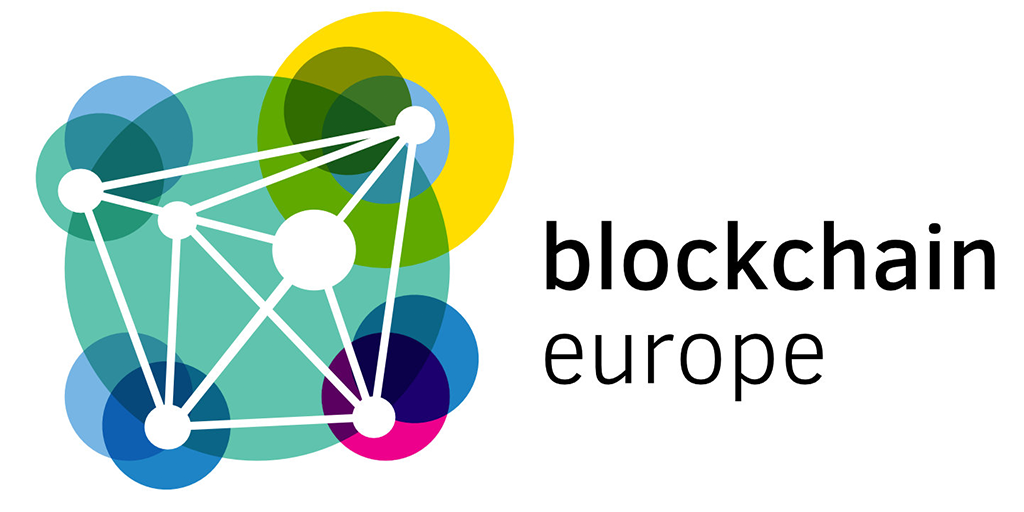
The project to establish the European Blockchain Institute in North Rhine-Westphalia.

Internet-based services are shaping the value creation of tomorrow.

Networking and interaction work in smart technical services.
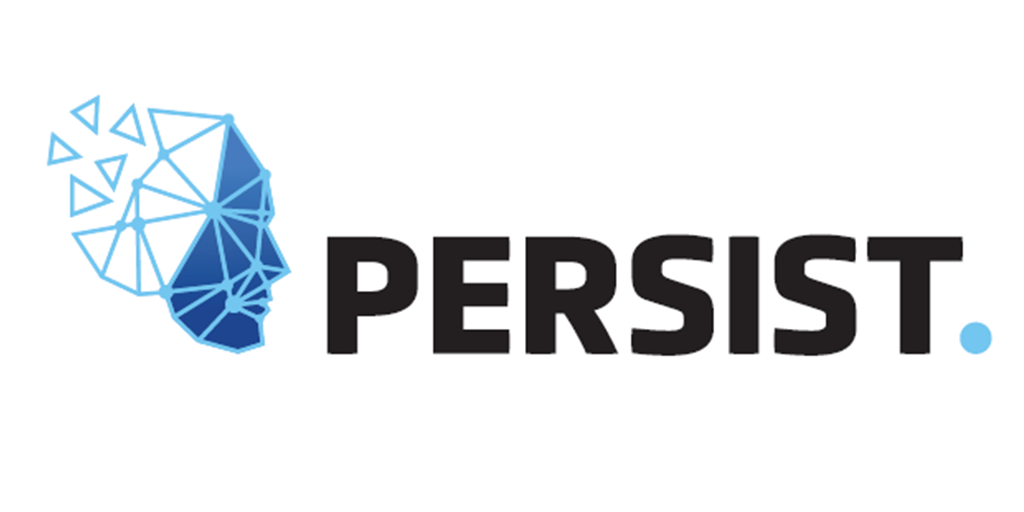
Purchasing Education Research Syndicate: Teaching Industry 4.0 skills.
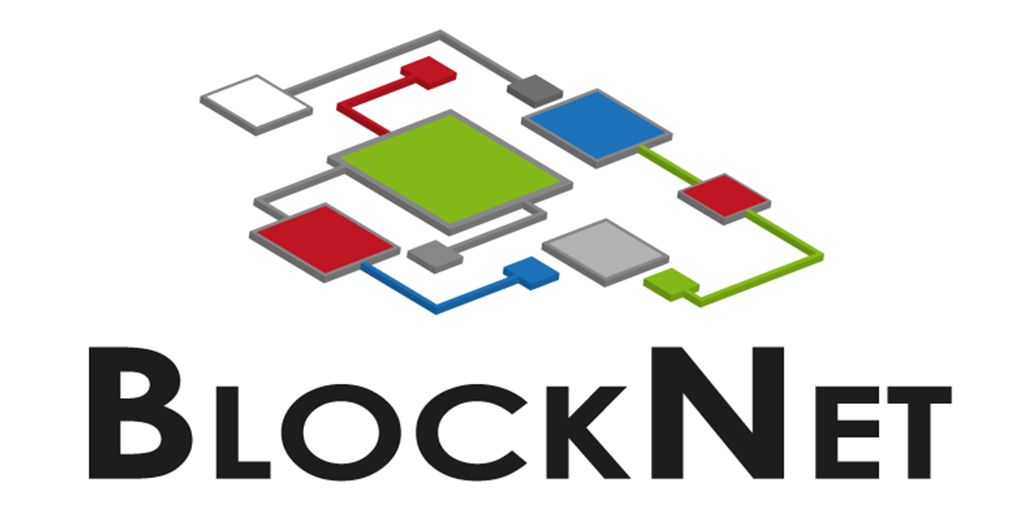
Blockchain Network Online education for interdisciplinary European skills transfer.
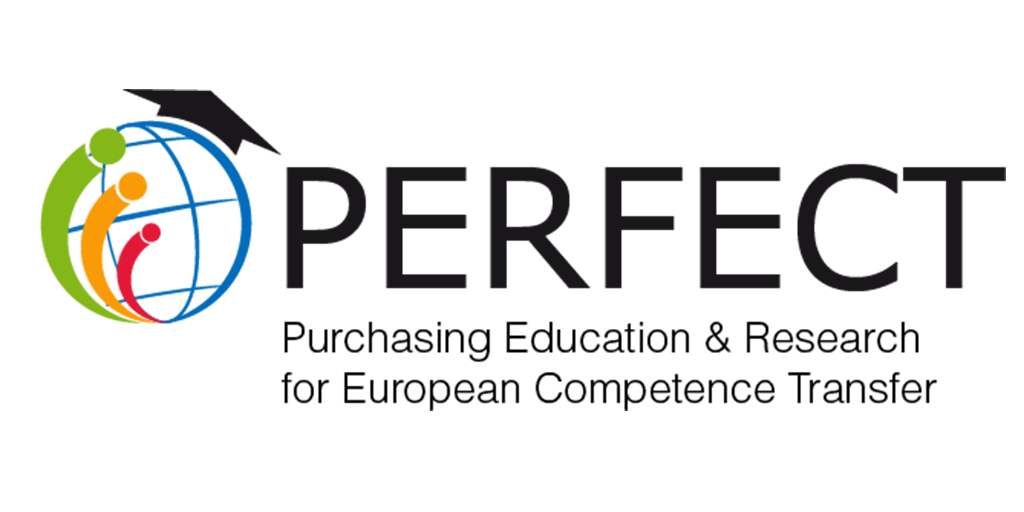
Purchasing education and research for European skills transfer.
Older projects
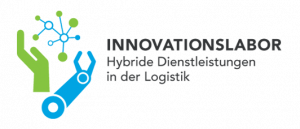
The Innovation Lab Hybrid Services in Logistics is an interdisciplinary research project in which TU Dortmund University and the Fraunhofer Institute for Material Flow and Logistics are jointly developing technological innovations for a social networked industry. The Federal Ministry of Education and Research (BMBF) is funding the project with a total of 12 million euros (2016 - 2019, extended until 2020). The innovation lab aims to strengthen Dortmund's digital pioneering role in terms of services and logistics and accelerate the acceptance and introduction of new technical solutions in the Industry 4.0 environment.
The Chair of Enterprise Logistics LFO was responsible for the development of hybrid services in the context of smart maintenance during the first project period. With the extension of the project, the LFO is now focusing on the potential of a dynamic organization for hybrid business models (work package 9). The challenges posed by the increasing complexity of production systems and, in particular, the increasing service orientation in plant and mechanical engineering are being investigated.
The results are incorporated into other fields of work in the context of cyber-physical production systems at the Innovation Lab in order to support companies in both the technical and solution-oriented development of innovative service bundles.
Find out morehere.
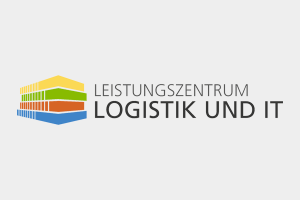
The Chair of Enterprise Logistics is part of the High Performance Center for Logistics and IT. The High-Performance Center is an initiative of the Fraunhofer-Gesellschaft and is funded by the Fraunhofer-Gesellschaft and the state of North Rhine-Westphalia. Industry supports the High Performance Center by participating in individual research projects. The aim is to expand the existing research and development center for logistics and IT in Dortmund into a world-leading innovation ecosystem with partners from industry and science.
The focus is on new innovation corridors and points of contact for research and innovation projects with industry as well as for networks and alliances. The activities of the High-Performance Center will provide sustainable support for Dortmund as a science location and for logistics research by reflecting on the state of logistics research at the location, in particular taking into account the structural and methodological changes with regard to Logistics 4.0. Current research fields and questions are to be highlighted and new ones pointed out. In addition, the project is based on six central pillars: contract research, licensing, spin-offs, minds & careers, further education and transfer to society. The Graduate School of Logistics as a feature of excellence of the High Performance Center offers a unique format for structured, business-oriented doctoral training.
The Chair of Enterprise Logistics (LFO) was already an essential component and project partner of the High Performance Center in the first funding phase. In particular, scientific questions from the perspective of planning, simulation and control were answered with a focus on virtual and simulative models for the economic efficiency and maturity assessment of autonomous systems in logistics. In this context, empirical case data was used to develop the necessary methods and tools to determine the prerequisites for use and to evaluate the benefits of autonomous cyber-physical systems in inventory planning.
As part of the second funding phase, the LFO is primarily participating in the "machine learning" and "business models and innovation transfer" research clans.
The aim of the "machine learning" clan is to network users with ML researchers through various formats to increase ML usage for better solutions to practical tasks in logistics applications in companies and public institutions and their supply chains. The aim is to create a network of organizations interested in ML, which will be linked with each other and with the research institutions in Dortmund via a central platform. Industry-specific specialist events and contributions to specialist events are intended to facilitate the exchange of experience between application organizations and researchers. In an application study on the spread of ML in Germany, factors that favor or inhibit the spread of ML will be identified more precisely in order to achieve a higher level of ML application. In addition, a Data Mining/Machine Learning Cup for students will be designed. Finally, research results and experiences will be incorporated into teaching at the Dortmund location.
The Business Models and Innovation Transfer clan focuses on the integration and transfer of results from the innovation ecosystem of the High Performance Center on the topic of business models. This involves developing holistic project formats from the design and evaluation through to the implementation of new business models in logistics / supply chain. As a result, the portfolio of services will be strengthened and expanded to include logistics-specific business model services from the innovation ecosystem. In addition, qualification formats for practice, science and teaching in the field of business model development are being designed. Interdisciplinary networking with partners beyond the innovation ecosystem is also an important task of the clan.
Find out morehere .

As part of the DFG Project Academy on the topic of "Sustainability in global value chains", professors are prepared at an early stage of their careers to write targeted research proposals and thus start carrying out research projects. For example, participants will gain insights into application formalities, important aspects during the application process, suitable funding opportunities and the implementation of research projects. All participants bring their own research ideas with them, which are discussed together and developed further in a cooperative manner during the course of the project academy. The results will be published in a joint anthology in April 2020.
The aim of this project academy is to give professors the opportunity to start conducting research projects at an early stage of their career. Professors at universities of applied sciences who have been appointed to a professorship for the first time within the last six years are eligible to participate. In order to ensure professional and scientific coverage of the value chain, all participants are experts in their respective fields, e.g. purchasing, logistics, production, supply chain management (SCM), sustainability or business ethics. Univ.-Prof. Dr. habil. Michael Henke, Chairholder and Institute Director at the Fraunhofer Institute for Material Flow and Logistics IML, coordinates and manages the project academy in collaboration with Prof. Dr.-Ing. Holger Kohl, Head of the "Sustainable Corporate Development" department at TU Berlin.
The overarching topic of "Sustainability in global value chains" will be examined in more detail in the following three sub-topics as part of the project academy.
Which ethical aspects of the sustainability concept must be taken into account as framework conditions?
This question examines what ethically correct behaviour means in the context of global value chains and whether it is mainly a matter of certification and standardization standards of international institutions or whether one must start with more fundamental (economic) ethical principles. The aim is to clarify to what extent global standards can be enforced in geographically dispersed value chains and by whom such standards should be defined, demanded and reviewed. Furthermore, it will be examined how multinational companies can economically and responsibly fill governance gaps in failed states or crisis regions.
Which parameters and activities should be improved and how can progress be measured?
his topic area focuses on the critical parameters for comparability between industries, countries and companies and looks for new approaches to documenting these parameters. The aim is to clarify the extent to which sustainable supply chain management indicators have been used in Germany to date and where they rank in comparison with other countries in terms of implementation status. In addition, the extent to which these indicators are collected (only from the direct upstream supplier, through to primary production, through to the end consumer or even to disposal or recycling? -> "Cradle to Cradle", "Circular Economy" or "Closed-Loop Supply Chains") and what the connection is between the sustainability of production and supply chains and the behavior or reaction of complex social and economic systems.
What measures can be used to achieve sustainable value chains and anchor them more effectively in practice?
This topic area deals with best practice solutions that should make it possible to develop dynamic capabilities within companies and value chains that enable autonomous and continuous improvement of sustainability performance. Furthermore, it will be investigated which measures for improving sustainability performance can be successfully integrated into practice and which structural characteristics of the value chains and actors are conducive to dissemination. The aim is to find out how global value chains can be made more sustainable overall, which governance mechanisms are available to focal companies with regard to the management of sub-suppliers and how an efficient, effective and resilient value network can be developed. Another focus is on classifying the role of digitalization, especially big data analysis and artificial intelligence, in defining measures to improve sustainability.
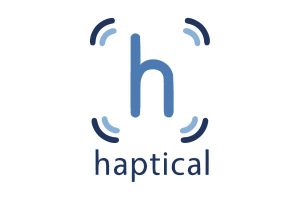
Machines, robots, sensors - things communicate independently via the internet and form a digital twin of reality. These innovations will shape the working world of the future. However, it is certain that people will continue to be the focus of attention in the future. With its haptical project, the Chair of Enterprise Logistics (LFO) at TU Dortmund University is one of the winning teams in the 2018 Science Year - Working Worlds of the Future university competition. The idea: to present the topic of the Internet of Things in such a way that it can be experienced haptically and thus shaped: The Internet of Things and Industry 4.0 "up close and personal". This year, the concept and the project idea will once again be used in new demonstrators that illustrate complex topics such as secure data transfer in 3D printing networks or in the context of supply chains in a clear and interactive way.
The Internet of Things (IoT) and Industry 4.0 will shape the working world of the future. This also means that information will be exchanged without human intervention. This opens up a lot of potential - but it is precisely because communication takes place without the involvement of humans that skepticism arises: what is the content of "conversations" in the IoT and who takes part in them? As a result, the flow of information remains hidden from people and fear of contact arises. With the haptical project, the flow of information between smart objects and IT systems is graphically illustrated and made tangible through the possibility of interaction and design. The result is an environment that is conducive to learning, reduces fear of contact and enables people to help shape the world of work.
The haptical project raises awareness of the topic of IoT in a playful way and reduces fear of contact. The structure of the interactive learning environment consists of smart objects that can be experienced haptically (3D printed objects enriched with sensors) and the visual projection of their surroundings and information flows. This creates a haptic interface between the real world and the virtual world beyond established indirect interaction options such as mouse or touchscreen.

Creative industry development of a game-based learning environment for logistics
As part of the "CreateMedia.NRW" lead market competition organized by LeitmarktAgentur.NRW, the LFO is playing a leading role in the joint project "CreaLOGtiv - Creative development of a game-based learning environment for logistics". The kick-off meeting took place on September 16, 2016 at TU Dortmund University with the participation of joint partner ARUBA Studios GmbH.
The aim of the project was to harness creative approaches from the game development industry to overcome the challenges posed by Industry 4.0 in terms of skills development in the logistics sector in order to proactively prepare operational employees for their new logistics tasks and to promote the continuous improvement and innovative design of logistics processes from the bottom up by developing design skills.
The CreaLOGtiv project has developed a game-based learning environment for the development of process design skills for logistics in Industry 4.0 using creative business approaches from the gaming industry based on VR technologies. The potentials of game design and playful interaction concepts were systematically explored in order to enable the development of interdisciplinary skills that cannot be taught directly in the subject-specific context of logistics by integrating the mechanisms of entertainment games. By using virtual technologies, a realistic learning game environment was implemented in the form of a serious game that recreates the complexity of corporate reality and at the same time provides a protected space for experimental and collaborative learning in the process.
Find out morehere .
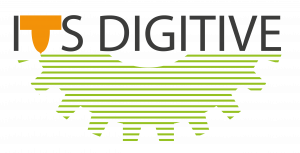
Secure digital order processing for the productive use of 3D printing in value chains
The It's Digitive research project, which was launched on 15.05.17, is working on how 3D printing-based services can be designed, controlled, secured and protected against manipulation. A consortium that covers the entire future value chain is developing the prerequisites for the cooperative processing of 3D printing-based services.
D-printing processes have enormous potential to change future value creation patterns. Individualized products can be manufactured in small batch sizes with maximum component flexibility. However, these advantages only really come to fruition in 3D printing service networks. In such networks, service processes such as industrial maintenance can benefit from the procurement of specific additively manufactured spare parts, very short processing times and independence from the customer's location.
The prerequisite for the implementation of such networks is a functional and secure, cooperative order processing process between customers, 3D printing centers, maintenance service providers, manufacturers and platform operators in an open service network. Such an order fulfillment process has not yet been fully described, nor is there an adequate IT infrastructure that allows this kind of value creation in the service network. Users in particular have many reservations regarding IT security technology and product warranty issues, both in terms of data protection and data security.
The It's Digitive research project, which was launched on 15.05.2017, is therefore investigating how 3D printing-based services can be designed, controlled, secured and protected against manipulation. A project consortium covering the entire future value chain is developing the prerequisites for the cooperative processing of 3D printing-based services. The focus is on the protection of intellectual property and the development of secure and trustworthy order handling processes. Based on the risks and threats identified in this distributed order processing and the fundamental requirements of product warranty and data protection, appropriate security countermeasures are being developed using two use cases as examples and implemented as a prototype in a service platform for 3D printing-based services as a demonstrator.
Learn morehere .

Assistance system for demography-sensitive, company-specific skills management for production and logistics systems of the future
As part of the program "Work - Learning - Developing Competencies. Innovation capability in a modern working world."
of the Federal Ministry of Education and Research (BMBF), the Chair of Enterprise Logistics (LFO) at TU Dortmund University is playing a leading role in the joint project "ABEKO - Assistance system for demography-sensitive, company-specific skills management for production and logistics systems of the future". The joint project is being carried out in cooperation with the Center for Higher Education (zhb) as an additional research partner on the part of TU Dortmund University and the industrial partners Materna TMT GmbH and MAHLE Aftermarket GmbH Schorndorf as well as the associated implementation partners GlobalGate GmbH, EffizienzCluster Logistik e.V and DIALOGistik.
Find out morehere .
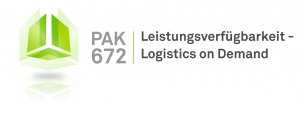
In recent years, the tasks of logistics have expanded considerably. The provision of logistics services no longer only concerns individual sections of production process chains, but the entirety of the processes of all order cycles, including the procurement processes from the supplier market or the distribution processes to the customer market.

Method for dynamic evaluation and planning of variant-driven product diversity in multi-stage automotive value networks
In multi-level, automotive value creation networks, the constant dynamization of the markets results in decreasing planning reliability as well as additional resource requirements, increased coordination requirements and control effort for almost all organizations due to the increasing variant-driven product diversity.
Due to the constant dynamization of the markets, the increasing variant-driven product diversity in multi-level automotive value-added networks results in decreasing planning reliability as well as additional resource requirements, increased coordination requirements and control effort for almost all organizations.
The aim of the ProviWe research project is to develop a holistic approach to the logistical evaluation and planning of variant-driven product diversity, which provides a cross-organizational, dynamic view of the effects on logistical costs and performance over the entire product life cycle and across the entire automotive value-added network.
For this purpose, a model-based mapping methodology is developed that identifies the cross-organizational driving factors of variant-driven product diversity and their interdependencies and maps their dynamics in a model-based manner. The simulation-based evaluation methodology based on this allows the effects of variant-driven complexity in the value creation network to be quantified over the entire product life cycle. A scenario-based process model uses variant-specific indicators to provide suitable starting points for variant management in the context of product development and logistics planning in the value creation network.

Resource-oriented maintenance logistics
Previous approaches to increasing efficiency in logistics were primarily aimed at optimizing inventories or highly automated intralogistics systems with correspondingly high availability requirements. Manufacturers respond to this with oversized and robust systems instead of intelligent maintenance strategies.
The joint project therefore aims to enable manufacturers of intralogistics systems, their operators and maintenance service providers to take into account the resource consumption and resource efficiency of components and systems when making decisions in the areas of procurement, operation, maintenance, spare parts stocking and disposal.
The results of the project are strategic planning tools for the design of eco-efficient intralogistics systems, which determine the effects of a change in maintenance strategy and significantly reduce the stockpiling of spare parts.
To this end, a process model of fault management for SMEs was developed as part of this research project and implemented as a prototype in a demonstrator.
Integrated fault management achieves considerable increases in process efficiency and reduces follow-up costs and economic risks. For further information, please use the link to the Flex-WFM project website.

e-Qualification for efficient logistics processes
eQuaL 2.0 was a joint project as part of the EffizienzCluster LogistikRuhr. Embedded in the guiding theme of "Logistics design competence", the project pursued the goal of transferring knowledge about logistics processes to companies and, in particular, to operational employees.
A qualification system based on process simulations was developed that is innovative in terms of didactics, content and technology and can be adapted to specific companies. The aim was to ensure that in-company training not only imparts knowledge, but that knowledge is generated collaboratively.
A qualification system based on process simulations was developed that is innovative in terms of didactics, content and technology and can be adapted to specific companies. The aim is to ensure that in-company training not only imparts knowledge, but that knowledge is generated collaboratively.

This research project involved the conceptual and technical development of a web-based, dynamic tool for identifying weaknesses and untapped potential in the application of a GPS throughout the company and network, which then identifies opportunities for optimizing the GPS. Currently, methods of holistic production systems are being implemented in SMEs with great difficulty, whereby companies currently lack tools for objectively measuring the effectiveness of these methods and identifying further potential when maintaining and optimizing them.
The following questions were explicitly answered as part of the project:
Which success factors in the organization, implementation and inter-company application enable the optimal application of a company-specific GPS?
How must a GPS diagnostic system be set up in terms of content and structure to enable needs-based adaptation?
What interdependencies exist in the "method network" and how can these be mapped in the question system?
How can the evaluation of the diagnosis be designed in such a way that a relevant and coherent set of measures is output?
What requirements must be met so that the diagnostic system can be integrated into day-to-day business and used smoothly?
How should the diagnostic system be designed to ensure standardized expandability and sustainability?
The diagnostic system can be dynamically expanded, modified and updated and is therefore itself subject to the idea of a continuous improvement process.
This project was supervised by the Bundesvereinigung Logistik e.V. and financially supported by budget funds from the Federal Ministry of Economics and Technology (BMWi) via the Arbeitsgemeinschaft industrieller Forschungsvereinigungen "Otto von Guericke" e.V. (AiF).

In the sub-project "Highly Extensible Life-Cycle Oriented Placement of the Order Penetration Point (BRAGECRIM IDELN/HeliOPP)", a method for positioning decoupling points in global supply chains was developed as part of this Brazilian-German research program "Integrated Design and Evaluation of Logistic Networks", taking into account specific product, process and market characteristics. These characteristics are subject to fluctuations: Product and market characteristics change along the product life cycle, process characteristics are changeable within the scope of the specific flexibility in the network. To develop the integrated method for positioning customer decoupling points in global supply chains, three complementary research areas were integrated: Product variance and product life cycle, supply chain flexibility and the design of supply chain processes.
Suppliers of components with electronic parts are currently confronted with changing framework conditions and will be even more so in the future. The networks in which these suppliers operate are dominated on the one hand by the manufacturers of the end products (OEMs) and on the other by globally active, large suppliers of complete electronic modules ("mega-suppliers").
When designing procurement, production and distribution networks, the aim is to reduce production, transportation and inventory costs on the one hand and to positively influence delivery times and service levels on the other. One of the design decisions is the positioning of the customer decoupling point (CEP, Order Penetration Point - OPP).
The OPP defines the stage from which a product is produced according to a specific customer order and up to which point production is carried out anonymously in a warehouse.
In recent years, numerous potentials have been investigated scientifically by shifting the decoupling point. In the postponement literature, the effect is described by shifting the decoupling point as close as possible to the end customer. In the build-to-order and mass customization literature, numerous examples of more customer-oriented production (by shifting the decoupling point towards the suppliers) are described. All approaches agree on the importance of the positioning of the decoupling point, but so far there is no structured procedure for the actual positioning of the decoupling point depending on specific product, process and market characteristics.
On the industry side, the decision on the position of decoupling points is typically still made intuitively and based on experience.

The primary aim of this research project with the long title "Methods for stabilizing critical electronic supply chains by identifying and harmonizing customer-supplier interfaces (STABLE)" was to avoid or reduce supply bottlenecks in supply chains with electronic components. The tools and methods developed can be used both preventively and reactively while maintaining an optimal distribution of costs between the companies involved.
Critical chains in networks of end product manufacturers and multi-stage supply chains in the electronics industry were identified and analysed, and methods and tools for visualizing, designing and controlling these critical chains were developed. In addition, cost-benefit calculation methods were used to compare the savings achieved (reduction or avoidance of special shifts or special transports, avoidance of lost sales due to low delivery capacity, etc.) with the necessary expenses in order to achieve a basis for balancing the benefits between the partners involved (customer, supplier, logistics service provider).
Suppliers of components with electronic parts are currently confronted with changing framework conditions and will be even more so in the future. The networks in which these suppliers operate are dominated by the manufacturers of the end products (OEMs) on the one hand and by globally active, large suppliers of complete electronic modules ("mega-suppliers") on the other.
This situation often presents small and medium-sized suppliers of basic electronic technology with difficulties that they were not previously confronted with. In addition to the typical requirements of industries with variant-rich series production (automotive industry, electronics industry, partly mechanical and plant engineering, etc.), such as the control of an increasing number of variants with simultaneously increasing environmental turbulence, which in turn leads to higher quality requirements for all logistical processes, the supply chain type of "electronic supply chains" is particularly characterized by characteristic features.
Against the background of cross-industry competing and thus highly turbulent electronic supply chains with different product life cycles, the STABLE project will create methods and tools to harmonize these chains. Since small and medium-sized companies play a very important role in these chains (many jobs, high degree of innovation, etc.), but the current changes represent a major challenge for them, the approaches to be developed are tailored to precisely this type of company. To achieve this objective, core logistics processes (ordering and call-off behavior, delivery behavior, etc.) as well as central logistics parameters (inventories, delivery fulfillment, transport times and costs, etc.) are the subject of investigation. In addition to ensuring security of supply, the topic of "transaction costs at the customer-supplier interface" is also intensively examined by the cost compensation model to be developed.

The overall result of this research project with the long title "Value-added services and application scenarios for the identification and tracking of electronic components in the supplier network" is the provision of a holistic concept for the identification, evaluation and implementation of RFID-based value-added services for small and medium-sized manufacturers of electronic components. These value-added services simplify the identification of components and offer numerous possibilities for the analysis and optimization of manufacturing and distribution processes.
A technological concept for the use of RFID technology has been developed that enables the tracking of components, is based on the current state of development and can be integrated into existing system landscapes. The typical structures, processes, resources and requirements of SMEs were taken into account. The result includes a detailed evaluation scheme that describes the necessary boundary conditions for the sensible use of certain value-added services in SMEs as well as the data bases required for this. Based on the research results, application scenarios were developed and documented for the value-added services.
In the development, production and use of electronic components, manufacturers and suppliers are faced with ever-increasing demands for the provision of transparent product data and the establishment of efficient internal and external logistics. These result from the legal requirements of recent years and increased demands for flexibility from customers and technology. Small and medium-sized suppliers of electronic components in particular often do not have suitable methods, identification and control systems to meet the growing demands. This research project therefore aims to develop a holistic concept for the realization of value-added services to support product data documentation and internal and external logistics, primarily during production and distribution, for small and medium-sized enterprises (SMEs). This is to be done on the basis of RFID technology using component-based identification.
In addition to the direct benefits of greatly simplifying the collection and management of the required product data, there are numerous possible value-added services that are to be developed and validated in direct cooperation with representative companies. For example, further services for testing components before installation, process optimization, inventory optimization, network control, increasing transparency or order throughput analysis are conceivable. For the first time, a holistic view and coupling of identification value-added services across the entire supply chain is to be achieved. Taking into account the needs and restrictions of small and medium-sized manufacturers, a general implementation guide will be developed. In this way, SMEs in the electronics component supply industry will be able to meet all market and legislative requirements and improve their competitiveness against larger competitors through far-reaching optimization measures.
The project committee consisted of manufacturers of electronic components and RFID hardware. As partners, they accompanied the development of the concepts based on their actual processes in order to review and support the concept development and process models. The developed cost-benefit assessment model was applied and calibrated as part of the target process development in order to be available as a reliable tool. A final guideline contains a general process model for the introduction of value-added services, taking international standards into account.

Model-based methods for near-real-time adaptation and control of distribution systems
In this project, funded by the German Research Foundation, a model-based method for the load-oriented adaptation of distribution systems was developed, which meets the requirements of dynamics through the dynamic adaptation of the system. In addition, a knowledge-based method for the robust and adaptive control of the intralogistic material flow within the individual distribution nodes was developed.








